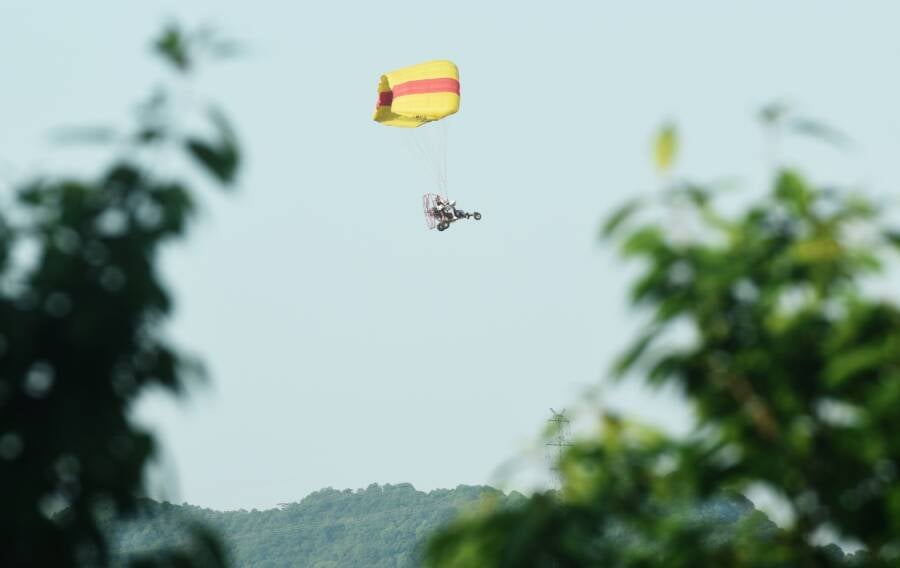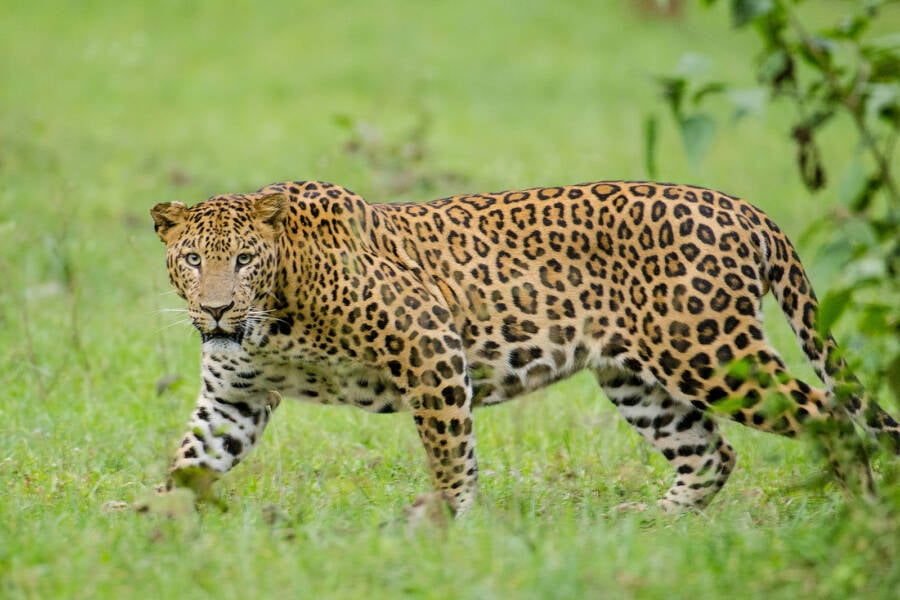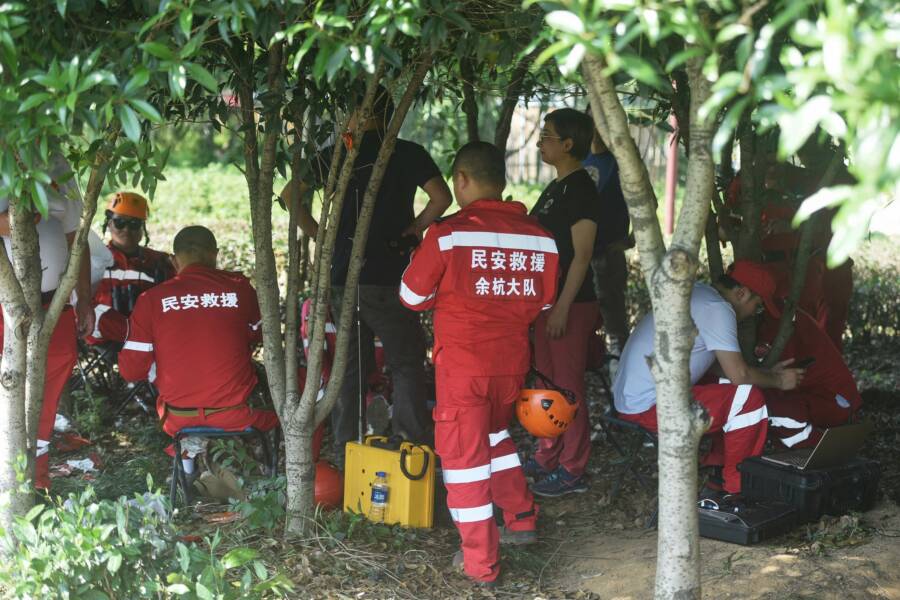When police started receiving calls about leopard sightings in the area, the Hangzhou Safari Park denied any involvement for over two weeks, fearing lost revenue during a holiday weekend.

Feature China/Barcroft Media/Getty ImagesA manned drone combing the Hangzhou search area for a third escaped leopard on May 9, 2021.
When residents of the eastern Chinese city of Hangzhou were recently given strict orders to remain indoors, the news actually had nothing to do with the ongoing coronavirus pandemic. Instead, there was a much different kind of threat facing locals: Three leopards had escaped from Hangzhou Safari Park, and they had been roaming around freely for weeks.
According to The Guardian, the terrifying lapse in security and park management occurred on April 19, 2021. It didn’t take long for locals to spot the dangerous predators skulking about the hillsides and sprinting across town.
But zoo officials denied any involvement in the incident until early May, fearing damage to ticket sales during China’s five-day Labor Day holiday at the beginning of the month. Hangzhou Safari Park is situated about 12 miles from the city’s downtown district, the upper range of what a typical wild leopard might travel in a single day.
Police discovered the animals ran off during an enclosure cleaning, with general manager Zhang Dequan ordering workers to keep quiet.

Costfoto/Barcroft Media/Getty ImagesArriving workers preparing to search the mountains near Hejia Village in Hangzhou, China on May 9, 2021.
A hushed scramble to recapture the three big cats began immediately, with workers succeeding to catch one leopard within 48 hours. It was shot with a tranquilizer dart and returned to its enclosure uninjured. Searchers captured the second leopard under more violent circumstances following a larger government hunt.
City and district government officials deployed packs of hunting dogs that viciously mauled the second leopard. Footage of this incident was released May 8 and appeared to show injury to the leopard’s hind leg, fanning public outrage even more than the news of the cover-up. The third remains elusive.
“Leopard tracks have been discovered near mountain villages,” warned a mass text message to locals. “Police are searching. Everyone please securely close doors and windows and do not go out.”
The search for the third leopard has since escalated to massive proportions, with 100 chickens deployed as bait and 990 drones, including a powered parachute vehicle operated by a pilot searching from above. Despite enlisting the aid of 1,700 personnel, tracker dogs, infrared motion sensors, and night vision tools, searchers appear no closer to capturing the third big cat.

Wikimedia CommonsWild leopards can travel up to 12 miles per day.
Furthermore, experts believe the remaining leopard on the loose is to be near starvation. Born and raised in captivity, it has never learned how to hunt on its own. The primary goal now is recapturing the third and final leopard to protect the public.
Officials are hoping that the chickens will draw the hungry animal in, and they have placed infrared sensors near bodies of water to catch the leopard during moments of thirst. From the air, hundreds of drones traverse the nearby mountains where the leopard is thought to be hiding.
Security guards are now posted around the search zone and people have been told to stay out of the woods. But for weeks after the initial escape, residents and zoo visitors had no idea they were at risk.

STR/AFP/Getty ImagesRescuers congregate while searching for the escaped leopard.
The May 1 Labor Day holiday saw more than 97,000 people visit the Hangzhou Safari Park, ignorant to the fact that two dangerous predators were on the loose nearby. The zoo’s denial for so long has led to effusive anger and critique of the park, and five people have been arrested in connection with the cover-up, including general manager Zhang Dequan.
Zoologists believe the chance of an attack on humans is rare but not impossible. And a senior expert with the Chinese Academy of Sciences said that as the third leopard gets increasingly desperate for food, it may become more agitated and more likely to take risks.
A statement by the Hangzhou Fuyang district government told locals what to do if they come face-to-face with the leopard: “You can raise both hands up and stand quietly, or slowly back away. Don’t turn around and run.”
After reading about the Chinese zoo’s secret leopard escape, learn about the world’s loneliest elephant and its life in captivity. Then, read about the French military training eagles to take down drones.





